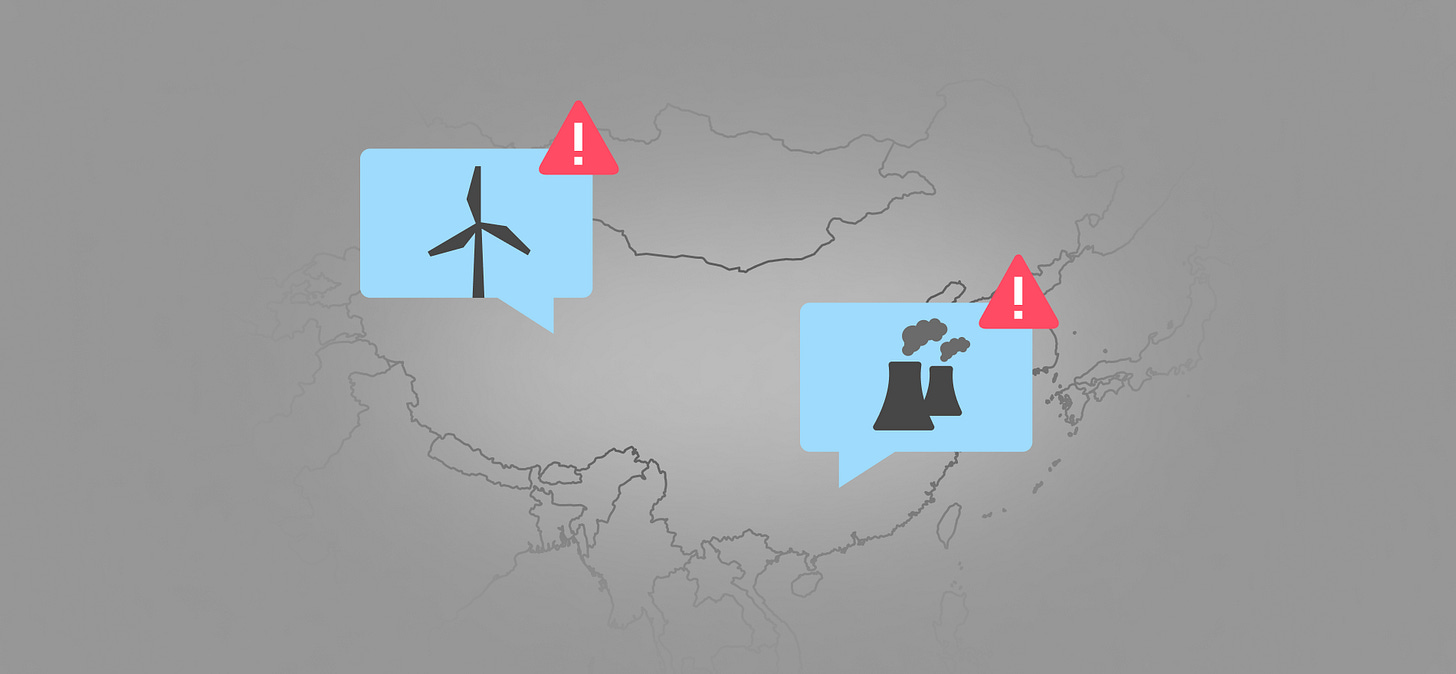Violence against women and journalists fueled by misinformation
And a report on climate misinformation in China
Hey Checklisters!
We hope you’re staying safe and healthy. Before we start a content warning: this week’s newsletter contains descriptions of violence against women.
Last week a clip from Manipur, India went viral on Indian social media showing two women being harassed, naked, by a mob. The video caused outrage in the country, and women are speaking out about this issue. And according to local media, the attack was incited by an image that was taken out of context.
Women's bodies have become battlegrounds for conflict around the world. Rape and sexual assault against women are used as instruments and to incite violence in conflict. It can often lead to a spiral of retaliations and revenge attacks once footage of such crimes is shared online and bundled with misinformation.
Also, take a look at the Townsquare section where we share opportunities and events.
If there are updates you would like us to share from your country or region, please reach out to us at checklist@meedan.com.
The Check Global Report
By Meedan’s Check Global team in Beirut, Kochi, Bhimtal, and Porto Alegre
Manipur assault video emboldens women to speak out (BBC)
The BBC shares the story of nineteen-year-old Chiin Sianching, who faced mob violence in the north-east Indian state of Manipur. She fears she could easily have met a similar fate.
Fake news on social media, purporting to show women being sexually assaulted by Kuki men were fuelling the mob of Meitei men against Chiin and her friend (who were dragged out of their room, beaten and left for dead). Early in the conflict a photo of a dead woman was circulated, apparently showing a Meitei nurse who had been raped and killed by Kuki men. Later, BOOM’s fact-checkers debunked the photo.
Missing Mexican journalist’s body found ‘with signs of violence’ (Al-Jazeera)
Mexico has been among the most dangerous countries for journalists in recent years. The current President Manuel Obrador's confrontational policy towards the press has further escalated the climate of tension and isolation for many journalists investigating political crimes and cartel actions. The death of journalist Luis Martín Sánchez Iñiguez from La Jornada has once again raised concerns about respect and protection for journalists in the country. In addition to Iñiguez's death, the police are investigating the disappearance of two other journalists in the same region.
“In accordance with what is established provisions into the applicable protocols, it is necessary to take into consideration the activities of the victims who put them at a greater degree of vulnerability.” — Statement by the public prosecutor’s office of Nayarit
Imprisoned journalist Sherwan Sherwani given additional 4-year sentence in Iraqi Kurdistan (Committee to Protect Journalists)
The Erbil criminal court sentenced Sherwani to an additional four years in prison for allegedly fabricating documents. Sherwani, who has been imprisoned since October 2020, was previously scheduled to be released on September 9, 2023, after his sentence was reduced by Kurdistan Regional President Nechirvan Barzani.
“Iraqi Kurdish authorities must drop all charges against journalist Sherwan Sherwani and free him immediately […] With the latest decision to extend his imprisonment by four years, Iraqi Kurdish authorities are showing their determination to tell the world how vicious they can be against journalists.” — Sherif Mansour, CPJ’s Middle East and North Africa program coordinator
Can Africa achieve ‘digital sovereignty’ in an era of Big Tech? (African Business)
Debates around Africa’s digital sovereignty have flourished in recent years. Numerous African scholars have passionately written about the need to protect African countries from being “overly-dependent” on foreign-owned companies, mostly US and Chinese, to build their internet infrastructures.
“Currently, the provision of digital infrastructure in Africa is primarily controlled by foreign entities. […] Notably, tech giants such as Google, Facebook, Microsoft, Amazon, and Apple along with several Chinese firms like Huawei and ZTE, are significantly involved.” — Adio-Adet Dinika, a Zimbabwe-born, Germany-based, political scientist
Special report: Narratives that drive climate misinformation in China
Meedan Independent Media Response Fund recipient Annie Lab has published a special report on the narratives behind misleading claims about climate change in China.
“The national discourse surrounding climate change drastically shifted around 2012, coinciding with the change in the state’s view on the topic. The climate crisis was seen as a tool by “the West” to prevent China’s growth until then. It was replaced by the notion that the crisis is real and, therefore, developing green technology is a great business opportunity for the country.” — Purple Romero, the author of the report
Townsquare
August 7, 2023
MFWA and Co-Develop announced a digital public infrastructure journalism fellowship program for journalists in West Africa.
August 18, 2023
Mozilla's Responsible Computing Challenge - India (RCC) is looking to fund academic teams to reimagine how the next generation of technologists will be educated.
October 23-25, 2023
UNESCO is organizing its yearly Global Media and Information Literacy Week with a special focus this year on digital spaces to strengthen multilateral cooperation with digital platforms and other stakeholders.
What else we’re reading
India’s sex workers turn to WhatsApp, Instagram to find clients safely. While these spaces help sex workers gauge their clients before agreeing to meet them, going digital comes with risks. (Rest of World)
Google demos “unsettling” tool to help journalists write the news. Google is positioning the tool as a personal assistant for news reporters. (Ars Technica)
Reporters Without Borders is spearheading efforts to make censored material extra visible. Their Uncensored Library project brings together architecture and journalism in an unlikely virtual reality space: Minecraft. (99% invisible)
The Checklist is currently read by over 1700 subscribers. Want to share the Checklist? Invite your friends to sign up here.







